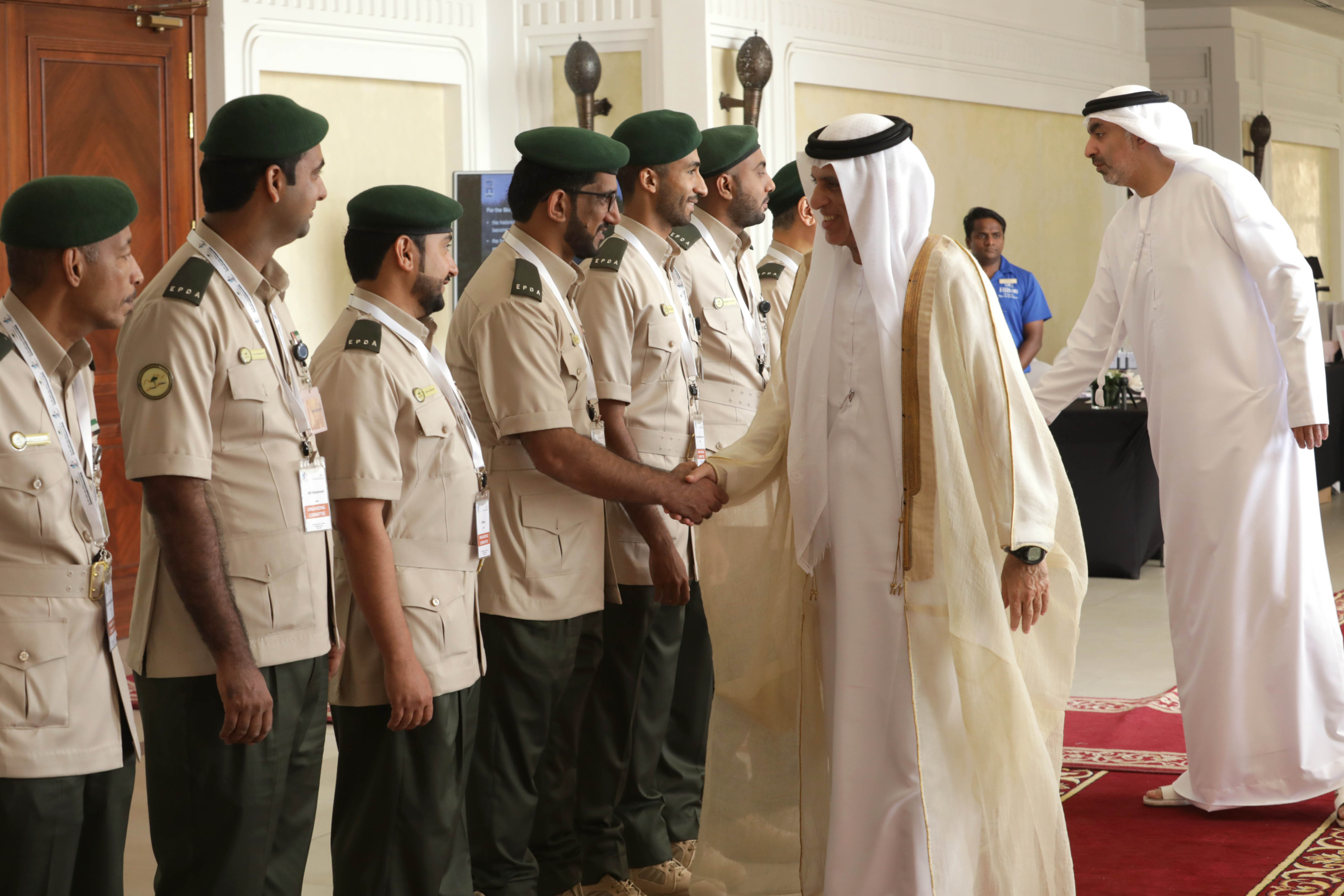H.H. Sheikh Saud bin Saqr Al Qasimi, Supreme Council Member and Ruler of Ras Al Khaimah, stated that the UAE has prioritized its national efforts to counter the repercussions of climate change, through an integrated national agenda that aims to achieve sustainable environmental development and efficiently utilize natural resources and clean and renewable energy, as well as through related national activities and initiatives, in partnership with various international organizations and the international community.
Sheikh Saud made this statement today while launching the “5th International Conference on Global Warming: Environmental Compliance,” organized by the Ras Al Khaimah’s Environment Protection and Development Authority, EPDA, with the participation of leading international scientists, academics and researchers who specialize in climate change and global warming.
During the launch of the three-day conference, Sheikh Saud said, “Ras Al Khaimah, as part of the UAE, has a strategic vision, which extends to 2040, to achieve the efficient use of energy and renewable energy, in line with the National Agenda of the UAE Vision 2021 and the National Plan for Climate Change 2050. It also aims to face the repercussions of global warming, through cooperating with its strategic partners both inside and outside the country, and adopting relevant environmental legislation and policies, to preserve biological diversity and ensure environmental sustainability.”
“We are proud of Ras Al Khaimah’s hosting of this international conference, which aims to highlight the leading environmental challenge facing the world, global warming, which requires international commitment and political and economic efforts at the highest level to create effective and sustainable solutions, as well as reducing emissions and preserving nature,” he added.
Dr. Thani bin Ahmed Al Zeyoudi, Minister of Climate Change and Environment, stated that the ministry aims to strengthen its cooperation and consolidate its strategic partnerships with local authorities, to adopt several projects that aim to reduce the effects global warming, including a project to utilize wasted energy produced by cement factories, which has been adopted by 50 percent of companies in Ras Al Khaimah and has reduced thermal pollution and air pollution while adding that environmental laws and legislation also help to regulate the environmental impact of industries.
Dr. Saif Al Ghais, Executive Director of the EPDA, stated that the EPDA has launched 27 initiatives to preserve the environment, including the “One Million Trees Initiative,” as well as many educational initiatives that aim to teach the topics of environment protection and sustainability to children.
Organizers says temperature of the earth is rising rapidly at a rate of about twice as much it was about 50 years ago. It is predicted that by 2050, average ambient carbon dioxide will range between 463-623 ppm, leading to an increase in global temperature ranging between 0.8 to 2.6 degrees Celsius, with a subsequent Sea Level rise of about 5 to32 Cm.
Global warming impacts are being felt in many vital sectors of the economy like agriculture and crop production, and relevant industry. After Kyoto protocol became an effective tool that commits state parties to reduce greenhouse gas emissions, and subsequent global warming (February 2005), about 192 countries are now signatory of the treaty. Such commitment acknowledges that individual countries have different capabilities in combating climate change, but obligation to reduce current emissions on developed countries was based on their historically responsible for the current levels of greenhouse gases in the atmosphere.
The world is now more committed than ever to finding solutions to the challenge of global warming, while supporting social and economic development around the world by providing energy that’s affordable and sustainable. Such commitments took different forms and action plans the present conference is meant to document all efforts made by different parties at various levels from governmental regulations and policies, industrial sectors including energy consumption, agricultural field and crop productions sectors, efforts made by scientific communities in the field of tolerance to increasing temperature and methods adopted to reducing carbon emission.
The three-day conference will address broad themes including case studies for compliance to governmental policies and regulations combating global warming; environmental polices related to energy sectors, transportation, and green building; ethics and justice issues in formulating climate change policies; expected impacts and possible adjustments of tourism sectors to global warming and technological Advances in carbon capture/storage/sequestration.
Panelists will also discuss economy of carbon trade and tax; ecological adjustment to global warming impacts on different Ecosystems; pressure imposed by global warming on marine and terrestrial resources and proposed regulatory adjustments and commitments for reducing impact of global warming on vulnerable species and ecosystems.


 Heart Of RAK
Heart Of RAK



